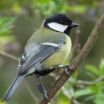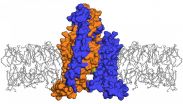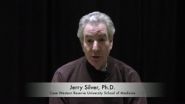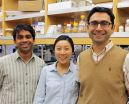The findings of the project, which included a survey of almost 1000 scientists and others, suggest that scientists are motivated in their work to find out more about the world and benefit society, and that they believe collaboration, multidisciplinarity, openness and creativity are important for the production of high quality science.
However, in some cases, the findings suggest, the culture of research in HEIs does not support or encourage these goals or activities. For example, high levels of competition and perceptions about how scientists are assessed for jobs and funding are reportedly contributing to a loss of creativity in science, less collaboration and poor research practices, such as rushing to finish and publish research or employing less rigorous research methods.
"We were struck that while almost all participants in this project shared similar concerns about the culture of research, they all felt that the problems were caused by matters out of their control or that they were someone else's responsibility," says Professor Ottoline Leyser, Chair of the Steering Group for the project, Deputy Chair of the Nuffield Council on Bioethics and Professor of Plant Development at the University of Cambridge. "We strongly believe that all those who play a role in the research system - including funders, research institutions, publishers and editors, researchers and professional bodies - have a collective obligation to ensure the culture of research supports good practice and the production of high quality science."
"There seem to be widespread misperceptions or mistrust among researchers about the policies and practices of those responsible for research quality assessment," said Professor Leyser. "For example, the Research Excellence Framework (REF) was felt to be a key driver of the pressure to publish in specific journals with high impact factors, despite the fact that REF panels were instructed not to use journal impact factors to assess research quality."
The Steering Group for the project included members of staff from the Royal Society, Academy of Medical Sciences, Institute of Physics, Royal Society of Chemistry and the Society of Biology.
The findings of the project include:
High levels of competition for jobs and funding in scientific research are believed both to bring out the best in people and to create incentives for poor quality research practices, less collaboration and headline chasing.
The pressure felt by scientists to publish in high impact factor journals is believed to be resulting in important research not being published, disincentives for multidisciplinary research, authorship issues, and a lack of recognition for non-article research outputs.
58% of the survey respondents are aware of scientists feeling tempted or under pressure to compromise on research integrity and standards. 26% of respondents have themselves felt tempted or under pressure to compromise on research integrity and standards. Evidence was not collected on any behaviour associated with these findings.
61% of the survey respondents think that the move towards open access publishing is having a positive or very positive effect overall on scientists in terms of encouraging the production of high quality research.
The report of the project concludes with suggestions for action for funding bodies, research institutions, publishers and editors, professional bodies and individual researchers. Key examples are:
Funders: ensure funding opportunities, strategies and policies, and information about past funding decisions, are communicated clearly to institutions and researchers.
Research institutions: cultivate an environment in which ethics is seen as a positive and integral part of research; and provide mentoring and career advice to researchers throughout their careers.
Publishers and editors: consider further the role of publishers in tackling ethical issues in publishing and in promoting openness and data sharing among scientists.
Researchers: when assessing the track record of fellow researchers, for example as a grant reviewer or appointments panel member, use a broad range of criteria without undue reliance on journal impact factors.
Learned societies and professional bodies: promote widely the importance of ensuring the culture of research supports good research practice and the production of high quality science.
Sir Paul Nurse, President, Royal Society, says: "We can't be complacent about maintaining the relationship between science and society, which is based on trust in science and scientists. The culture of research must support the production of good science - science which is open, honest and reliable."
Professor Sir John Tooke PMedSci, President, Academy of Medical Sciences, said: "The Academy of Medical Sciences welcomes the publication of this report and the issues it identifies. High quality impactful science relies on a positive and ethical culture and alignment of the right incentives as well as technical expertise and precision.
The Academy is a strong advocate for the benefits of a 'team science' approach to research, recognising that interdisciplinary collaborative activity is an essential means of tackling tough and complex questions. We believe there must be support for collaborative endeavour at all levels with appropriate skilling, mentoring and recognition of such contributions.
The Academy will consider the important issues raised in our current policy projects on team science and research reproducibility."
Professor Dame Jean Thomas, President, Society of Biology, said: "In this highly competitive academic system we need careful governance to nurture ambition and excellence. The survey shows that among researchers there is a clear ambition for the rigour, openness and collaboration that lead to high quality science. Leaders in science should capitalise on this by educating and empowering researchers to achieve these aspirations, and clearly communicating that they intend to evaluate research outcomes on the basis of valuable knowledge and real impact."
Dr Mindy Dulai, Senior Programme Manager, Environmental Sciences, Royal Society of Chemistry, says: "Sharing knowledge and theories sparks new ideas and innovation, yet there are mixed views on collaboration amongst the scientists we spoke to, with some saying increased collaboration has a positive effect on science while others felt that high levels of competition discourage it. As scientific knowledge is made increasingly open, the scientific community must address the perception that competition is a barrier to collaboration."
Previous work of the Nuffield Council on Bioethics brought to light concerns about the ethical consequences of the culture of scientific research in terms of its potential to affect research practices and the quality and direction of science. To explore these further, in 2013 the Council embarked on a series of engagement activities to promote debate and gather evidence about how scientists and other key stakeholders experience the culture of research. The project activities included: an online survey that received 970 responses mainly from researchers working in higher education institutions; a series of 15 discussion events at UK universities attended by around 740 people; and meetings with funding bodies, publishers and social scientists.
INFORMATION:
NOTES TO EDITORS
1. Embargoed copies of the report are available in advance on request. For a copy of the report, or interview(s) with the authors, contact:
Seil Collins,
Communications Manager
Nuffield Council on Bioethics
scollins@nuffieldbioethics.org
(+44) 0207 681 9232 / (+44) 07551 159670
2. About the project
The Nuffield Council on Bioethics carried out inquiries on the ethical issues raised by emerging biotechnologies in 2011-12, and by novel neurotechnologies in 2012-13. These inquiries brought to light concerns about the ethical consequences of the culture of scientific research in terms of its potential to affect research practices and the quality and direction of science. A detailed background paper which provides more information about the culture of scientific research in the UK will be available online once the embargo lifts: http://www.nuffieldbioethics.org/research-culture
These concerns were shared by organisations that work closely with the scientific community, including the Royal Society, Society of Biology, Institute of Physics, Royal Society of Chemistry and Academy of Medical Sciences. Under the guidance of a Steering Group that included members of staff from these organisations, in October 2013 the Nuffield Council on Bioethics embarked upon a series of engagement activities that aimed:
...to foster constructive debate among all those involved in scientific research about the culture of research in the UK and its effect on ethical conduct in science and the quality, value and accessibility of research; and to advance current debate through wide dissemination of the outcomes of these discussions.
The activities of the project included:
An online survey that received 970 responses. A detailed analysis of the responses was carried out by Research By Design and will be available online once the embargo lifts: http://www.nuffieldbioethics.org/research-culture
Fifteen discussion events co-hosted with universities around the UK involving around 740 speakers and participants. A summary of the issues that were raised at the events will be available online once the embargo lifts: http://www.nuffieldbioethics.org/research-culture
Evidence-gathering meetings with funding bodies, publishers and editors of scientific research, and academics from the social sciences.
Most of the people who took part in the project activities are involved in research being undertaken by higher education institutions (HEIs).
3. The Steering Group
Ottoline Leyser (Chair)
Professor of Plant Development and Director, The Sainsbury Laboratory, University of Cambridge; Deputy Chair, Nuffield Council on Bioethics
Laura Bellingan
Director of Science Policy, Society of Biology
Elizabeth Bohm
Senior Adviser, Science Policy Centre, Royal Society
Mindy Dulai (from June 2014)
Senior Programme Manager, Environmental Sciences, Royal Society of Chemistry
Ann Gallagher
Professor of Ethics and Care, International Care Ethics Observatory, University of Surrey; Member, Nuffield Council on Bioethics
James Hutchinson (until June 2014)
Senior Programme Manager, Life Sciences, Royal Society of Chemistry
Peter Main
Director of Education and Science (until May 2014, now Education Advisor), Institute of Physics
Peter Mills
Assistant Director, Nuffield Council on Bioethics
Jonathan Montgomery
Professor of Health Care Law, University College London; Chair, Nuffield Council on Bioethics
Rachel Quinn
Director of Policy, Academy of Medical Sciences
4. About the Nuffield Council on Bioethics
The Nuffield Council on Bioethics examines ethical issues raised by new developments in biology and medicine. Established by the Nuffield Foundation in 1991, the Council is an independent body, funded jointly by the Foundation, the Medical Research Council and the Wellcome Trust. The Council has achieved an international reputation for addressing public concerns, and providing independent advice to assist policy makers and stimulate debate in bioethics.




